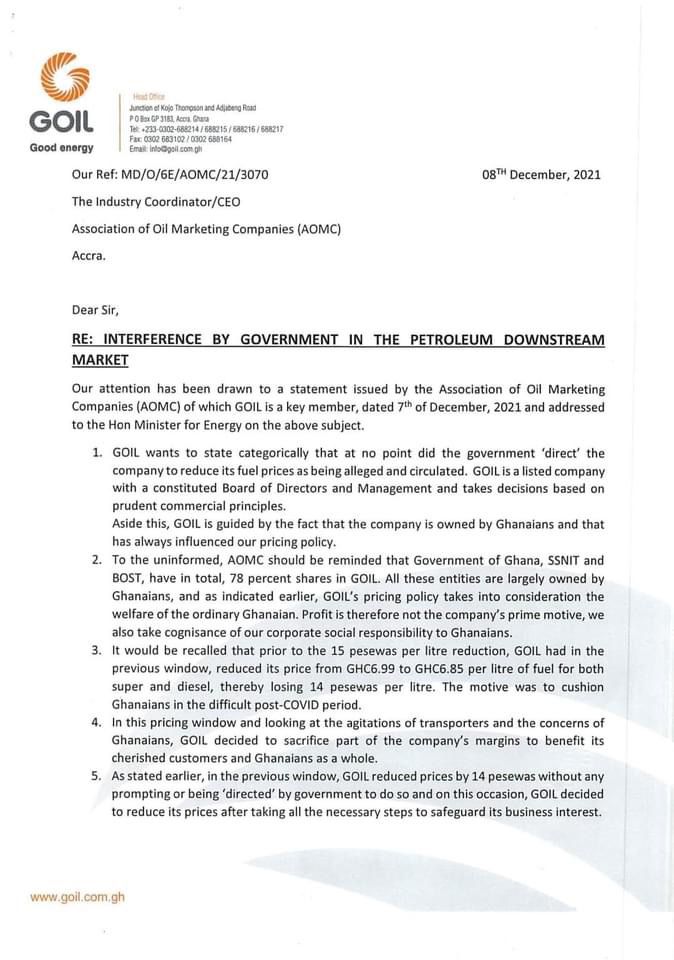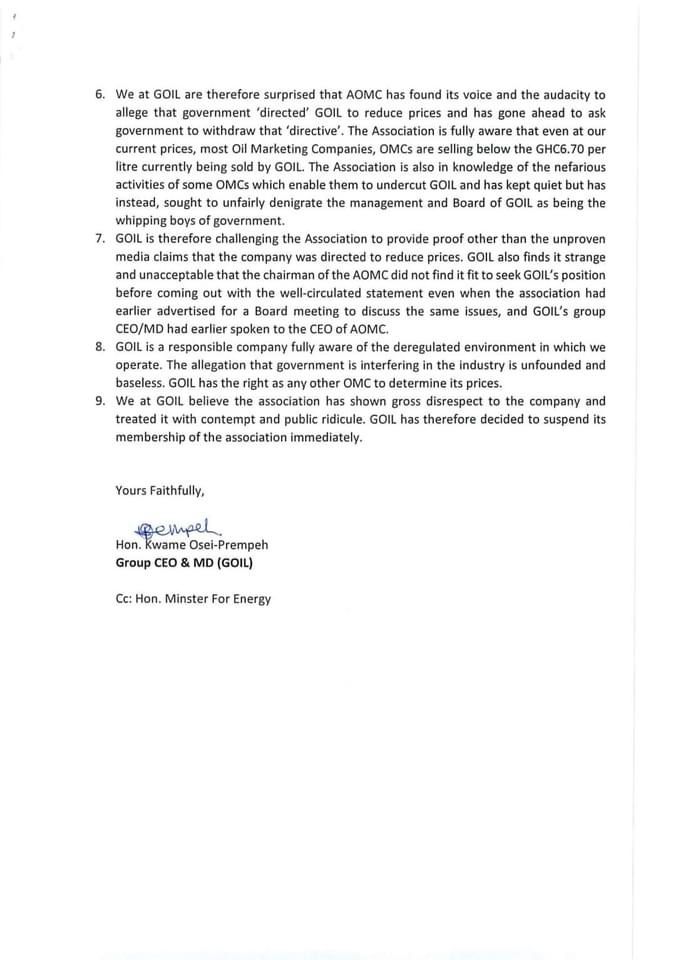GOIL Company Limited says they were not directed by the government to reduce fuel prices.
According to GOIL, "In this pricing window and looking at the agitations of transporters and the concerns of Ghanaians, GOIL decided to sacrifice part of the company's margin to benefit its cherished customers and Ghanaians as a whole."
GOIL said the allegations by the Association of Oil Marketing Companies (AOMC) are false.
“GOIL wants to state categorically that at no point did the government ‘direct’ the company to reduce its fuel prices as being alleged by circulated,” a press statement signed by the CEO and Managing Director of GOIL Company Ltd, Kwame Osei Prempeh indicated.
The statement also noted that “GOIL is a listed company with a constituted Board of Directors and Management and takes decisions based on prudent commercial principles”, adding that GOIL is guided by the fact that the company is owned by Ghanaians and that has always influenced our pricing policy.”


The Chamber of Petroleum Consumers (COPEC) said GOIL's decision to reduce fuel prices could cost them GH¢ 9 million every month.
According to him, the action by GOIL to reduce fuel prices is not a sustainable solution.
Executive Secretary of COPEC, Duncan Amoah, said the directive was “very problematic” because of the possible effects on GOIL.
“What the directive means to a company like GOIL is a shaving off of GH¢ 9 million in one month if you look at GOIL’s volumes of around 60 million litres monthly.”
“GOIL is listed and as a listed entity with other ordinary Ghanaians as shareholders… We think the approach and how it has been done so far can only create problems for all of us downstream,” Mr. Amoah said in a Citi FM interview.
As a more sustainable alternative for better fuel pricing for consumers, Mr. Amoah said “a long-term measure would mean that we should situate the taxes within the context of international market prices.”





